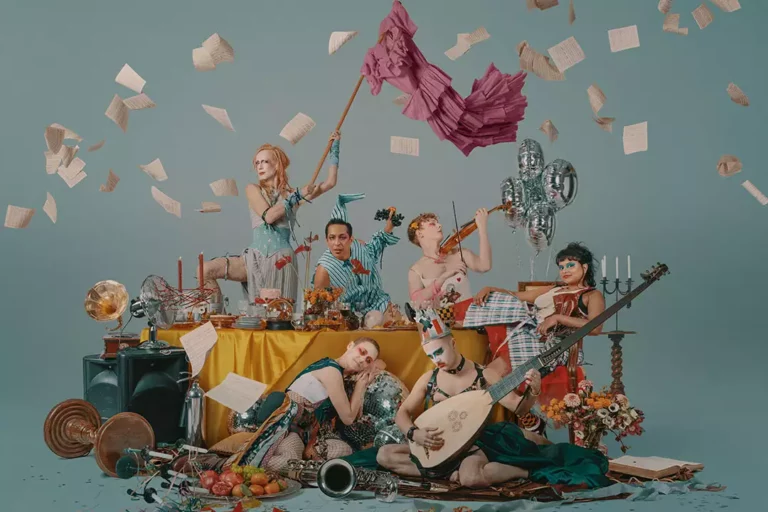
The Faggots and Their Friends Between Revolutions at HOME brings together theatre, dance and song for the ultimate anarchic bedtime story.


Poppy Bowers, Head of Exhibitions at the Whitworth, Introduces us to a new project with The University of Manchester, presented as part of MIF23.
What I love most about being part of the Whitworth is the shared purpose to nurture a creative and productive way of life through the application of artistic thinking. Much of our focus at the gallery is on transforming the way that art is encountered and used in our spaces, our city and indeed our wider world. To consider our gallery as a gathering site to address what matters in people’s lives, respond to current urgencies, and propose solutions to problems in the world.
Economics, a fundamental part of our everyday life yet seemingly a force beyond our control, is one such urgent issue shaping art and society. At a time of workers strikes, a cost-of-living crisis and a climate emergency, economy can feel as though it is driven by expansion of monetary wealth for the few, determined by those in power, rather than a system for social, ecological, or creative wealth determined by the many. It is within these conditions that artists in various regions in the world, are using art to radically rethink the economic systems in which they live.
On 30 June, we will open an exciting new exhibition at the Whitworth as part of Manchester International Festival that demonstrates what economic life looks and feels like when it is created and shaped by artists. Economics the Blockbuster: it’s not Business as Usual brings together ten art projects, based in different areas of the UK and elsewhere, that are changing their local economies in a radical, positive way. From an alternative school using group meditation to question how neoliberalism affects our everyday lives, and a tablecloth toolkit that prompts conversations on our food systems during a group meal, to an art collective reclaiming plantation land. The exhibition and accompanying live programme includes artist commissions, art as business, merchandise with a purpose, and workshops to reimagine and take back the economy. Let me introduce you to a couple of them.
Company Drinks is a community interest business that makes and sells drinks, based out of a former bowling pavilion in Barking Park, London. It was initiated by the artist collective My Villages in 2014, when they invited people to join them on a hop-picking trip. Together, they retraced the steps of working-class east London residents who, for generations until 1950s, travelled to Kent every summer to offer their labour for the hop harvest. Today it operates as a community-led space and drinks company, running monthly foraging and picking trips. It employs a team and processes, bottles and supplies its products to shops, markets and even the annual Frieze Art Fair bar. The income generated supports the continued production and running costs of resourcing and equipping their community building, as well as their art-as-business activity and skills sharing.
For some of its users, Company Drinks is a gardening space, a source of healthy eating, for others a common room, after-school entertainment, a space for exercise, paid employment. It is also an art practice and an artist’s studio. As an example of learning from and with others, Company Drinks will collaborate with the Whitworth Community Garden and its users to co-produce and sell a joint elderflower cordial. Together, they will host foraging trips and processing workshops in our city to initiate a community-led drinks company here in Manchester that will continue beyond the lifespan of the show.
Over 6000 miles away, in the town of Lusanga, in the Democratic Republic of the Congo, an art cooperative of plantation workers are reforming economies of the land. Cercle d’Art des Travailleurs de Plantation Congolaise, (CATPC) translated as the Congolese Plantation Workers Art League, operate from a former Unilever palm oil plantation. The cooperative makes sculptures from the plantation’s raw materials as well as drawings and videos that speak to the collective experience of colonial extraction of resources from their region. A selection of sculptures, ink drawings and a six-part video work made in collaboration with Dutch artist Renzo Martens will be presented in the exhibition. A large-scale diagram will illustrate how, through the sale of their works via the Western art market, they generate income to buy back depleted plantation land for the community and carry out the re-introduction of biodiversity into the exhausted crop fields, creating long-term food security.
As Company Drinks and CATPC demonstrate, the projects in Economics the Blockbuster are founded and made by artists and the local communities in which they live. They emerge from the resources and knowledges held in those communities, enabling them to collectively reclaim their economies in order to better serve their needs.
A key question for the gallery team is how can such models of self-organisation and collective practice infiltrate and transform larger organisations like the Whitworth? We have begun to explore this through a long-term collaboration with Centre for Plausible Economies, another participating art project in the exhibition.
Set up in 2018 by artist Kathrin Böhm and curator Kuba Szreder, Centre for Plausible Economies (CPE) is a platform for re-thinking economic systems. They facilitate workshops and discussions that use drawing as a tool to map out and make visible the everyday economies in which we participate. These drawings are then used to imagine new ways in which economies can be understood and reorganised from the ground up, creating a much-needed creative dialogue between art, economy and community action.
Over the last year, Whitworth staff have been working with CPE to understand how parts of our gallery operate, what value systems they support and what vital activities go unnoticed and ignored. How might we re-draw this to create a more equitable, honest and caring system? A central drawing room in the exhibition will display the drawings made by staff, inviting visitors to have their say and help us shape our gallery’s economy for the better. The space will also act as a studio for everyone to map out their own economic activity; it could be drawing how your football club operates, your home, an allotment or your office.
Finally, a ‘blockbuster’ exhibition on art as economic practice would not be complete without merchandise. Iumbung Kios, a global network of artists forging a self-driven, sustainable economic model for selling their work, will be providing merchandise with a purpose. Artists within the group collaborate with makers local to the kios to create products investing into local manufacturing and craft industries. The kios sells the work to generate funds for a collective pot, re-distributing the wealth equally across the network. A Iumbung Kios at the gallery will sell wares to visitors and will sit alongside produce and toolkits made by other artists in the show, from a box of chocolates by CATPC to RE-drawing kits by Centre for Plausible Economies.
Come drink some cordial, draw your economy, forage some fruit, watch a film, buy a pencil. Join us in imagining, making and testing new systems that help us to live together better.
This article was originally published in the Oxford Road Corridor zine. The Summer Edition 2023 is available to pick up for free from spaces around Oxford Road. You can view it online here too.

The Faggots and Their Friends Between Revolutions at HOME brings together theatre, dance and song for the ultimate anarchic bedtime story.
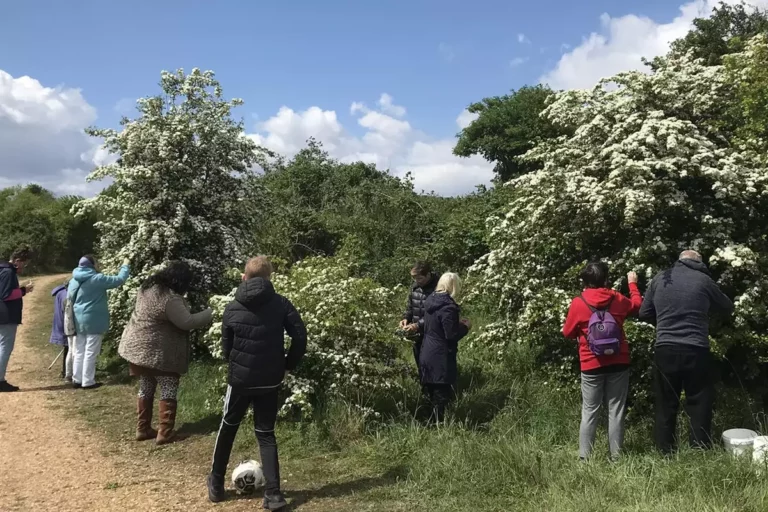
Economics the Blockbuster is a research and exhibition project, developed in collaboration with Alliance Manchester Business School and MIF.
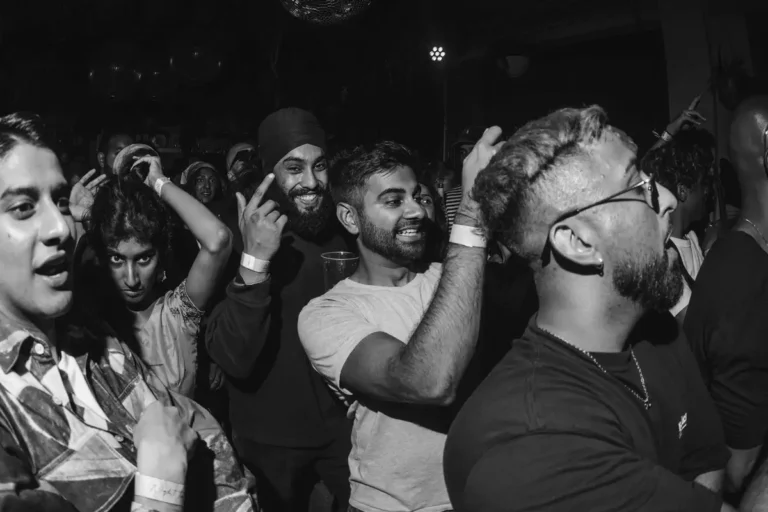
SEEN Magazine and Manchester Museum shine a spotlight on the sounds of the South Asian diaspora for Manchester International Festival.
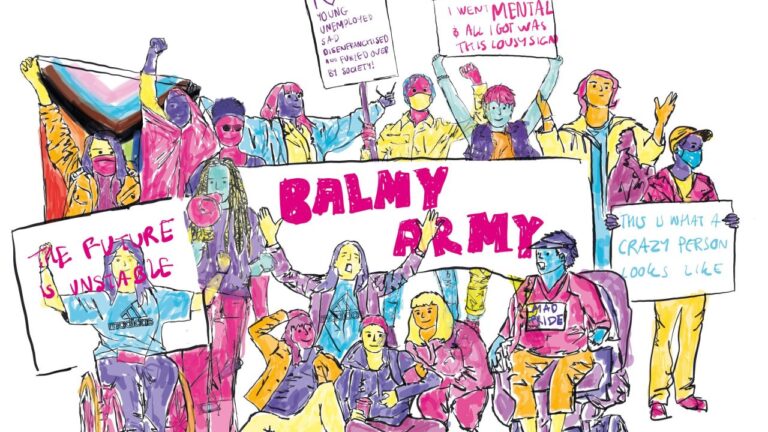
A movement for youth-led mental health. Balmy Army is art and activism rolled into one show – expect the unexpected.

Lose yourself in the world premiere of Sonic Geography by John Luther Adams, played by pianist Ralph Van Raat.
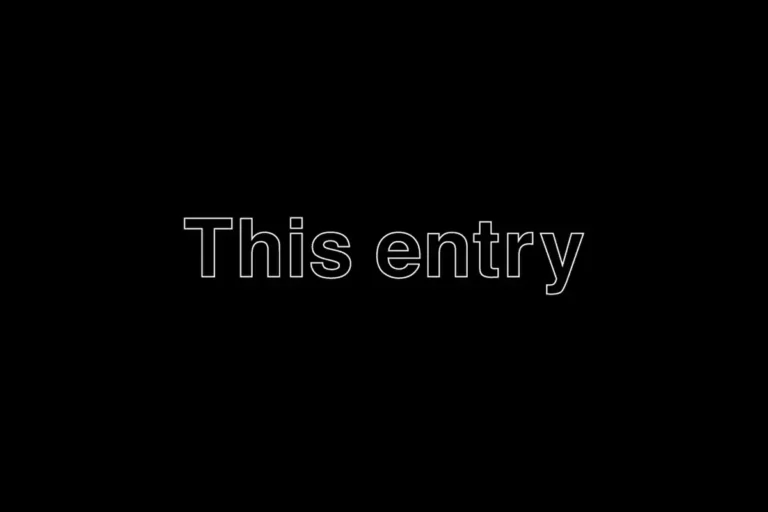
Tino Sehgal presents a playful exchange between different masters of their craft. Premieres at the National Football Museum and the Whitworth.
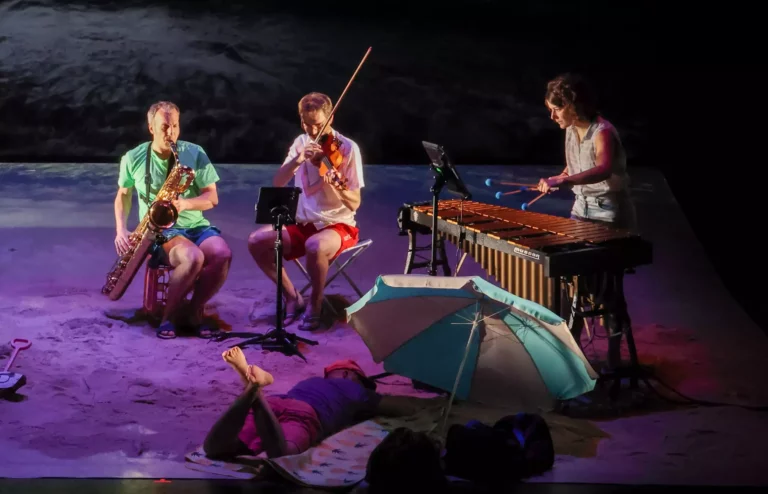
Weaving personal tragedy with catastrophe at large, All right. Good night. is a meditation on loss and how to deal with uncertainty.
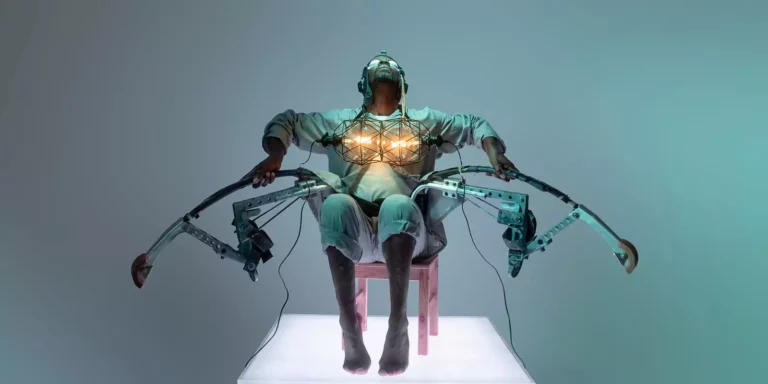
Known for Afro-futurist images that seem to defy gravity, Benji Reid invites us to watch him at play as he creates live photography in this genre-bending show.

Celebrate International Non-Binary People’s Day with 50 Hours of Freedom, a creative lock-in at Contact for MIF23
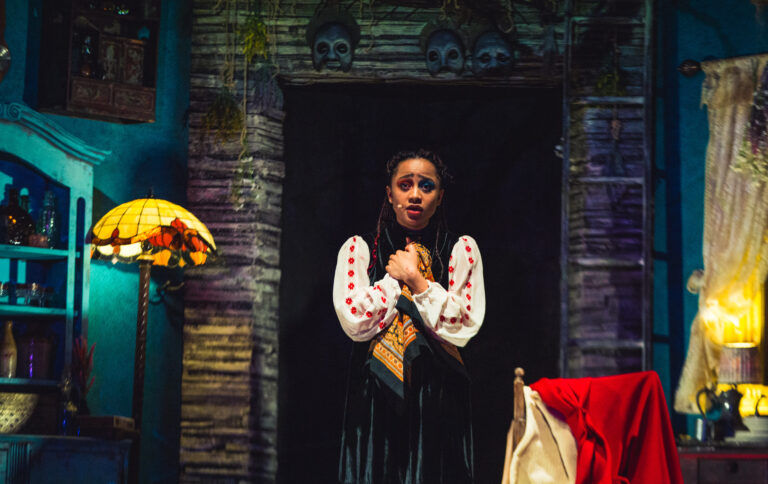
Whether it’s contemporary theatre led by young people or traditional art deco interiors, Oxford Road is home to many of Manchester’s iconic theatre and performance spaces.

Manchester is undeniably one of the UK hotspots for live music. With many of its most iconic venues based on the Oxford Road Corridor.
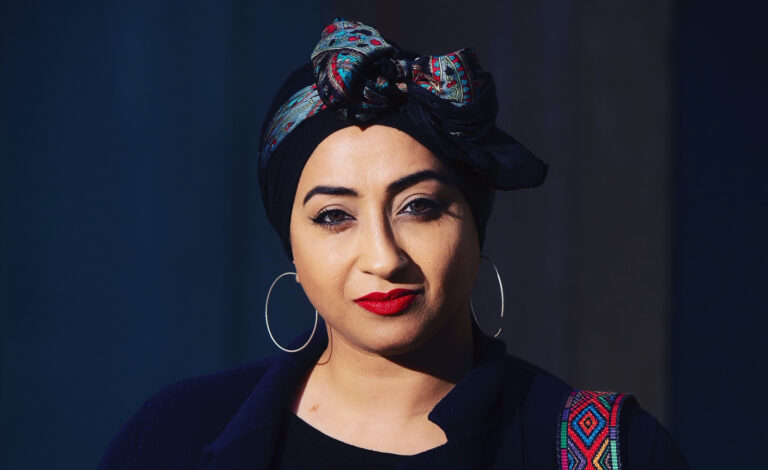
The area is immortalised in prose, poem and song and offers exciting and original opportunities to experience outstanding live literature.
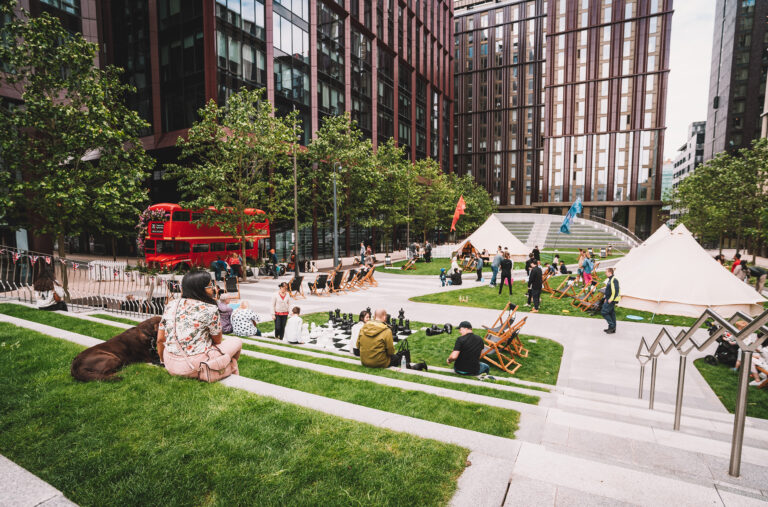
Circle Square is an exciting multi-million pound, mixed-use neighbourhood, created on the site of the former BBC building on Oxford Road.
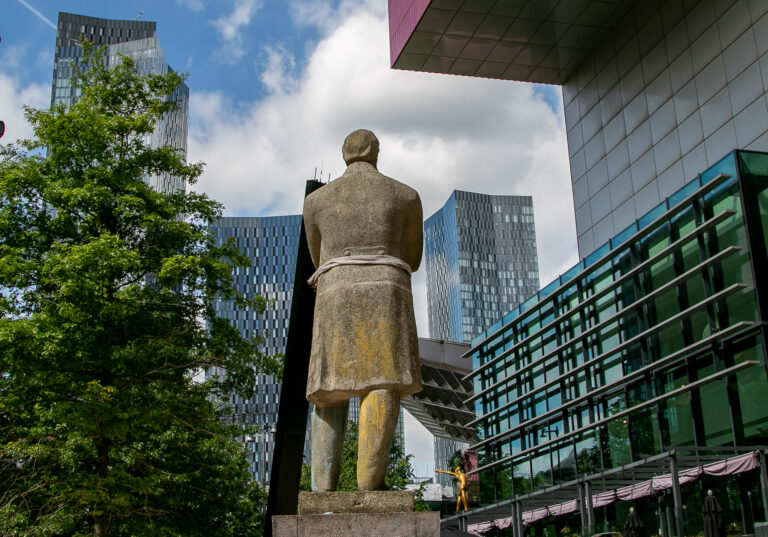
First Street is a vibrant neighbourhood between Oxford Road and Deansgate, it is home to a number of businesses and is a popular spot for food, drink and culture.

The food and drink in Manchester is some of the best in the UK with many of the finest offerings found here on the Oxford Road Corridor.